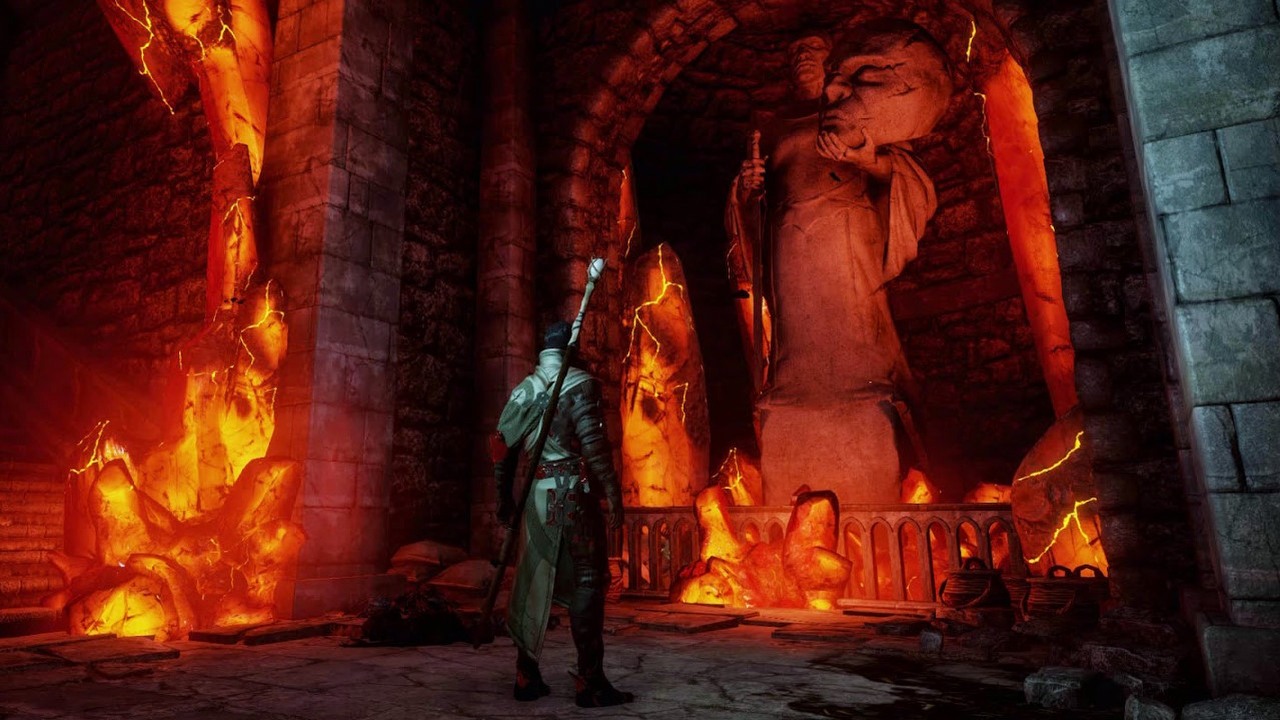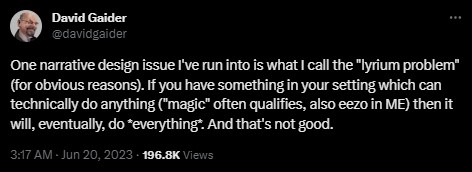Dragon Age Dev Criticizes Multiverse Fad, Cites Own Mistakes as Warning
Dragon Age series creator David Gaider warns against introducing omnipotent elements into games and movies, and recommends sticking to a consistent plan from the beginning to avoid narrative problems later on.

David Gaider, screenwriter of Dragon Age famous for his extensive interviews, which he occasionally conducts on Twitter, recently opened up about the hardships of working at BioWare and AI development. And now the artist spoke on the mistake most often made - in his opinion - by pop culture creators. To do this, he used as an example lyrium, a substance found in Dragon Age and having extensive magical uses.
Gaider noted that there is a so-called lyrium problem - it's an element that is supposed, as if by magic, to make everything suddenly possible, and fix all sorts of narrative inaccuracies of the work. According to the developer, in games this can be magical objects that have the power to explain plot holes.

In subsequent posts, Gaider points out the misuse of this "magic" element. As the creator noted, it is increasingly visible in the form of the so-called multiverse, with the help of which it is possible to resurrect dead heroes without hindrance, to link different series together, etc. This is an obvious reference to the current multiverse fad in cinema.
"Multiverse is another current example. It can do anything. We can tell any story. We can resurrect characters, break any existing rule of the universe... What other explanation do we need? Multiverse. Piece of cake," he continued.
The developer warned creators against overuse of such facilities, which without proper control will "grow like a weed.". To this end, it is necessary to stick to the "limitations set from the very beginning."
Gaider admitted that he himself fell into such a trap during the development of the aforementioned Dragon Age.
"I do not claim to be better. I myself created a "lyrium problem" in Dragon Age, because I was the main designer of the narrative. I agreed with everything at every step. It was a trap I fell into, mainly because convenience came first," he confessed.
In the end Gaider added that in order to save himself a "long-term headache," you have to "start working on consistency early on."
There's quite a bit of truth in the developer's argument. In recent years, we've even been bombarded with these kinds of gimmicks (read: multiverses), which on the one hand fix any plot holes, and on the other hand make what we see on screen less and less comprehensible. Admittedly, this is most evident in cinema, but there is concern that the gaming industry will also increasingly turn to this type of solution.
Finally, let's recall that Gaider has long been out of the employ of BioWare, which is currently preparing the fourth major installment of Dragon Age. As co-founder of Summerfall Studios, he is currently working on the project Stray Gods, which is scheduled to debut on the market on August 3.
0

Author: Kamil Kleszyk
At Gamepressure.com deals with various jobs. So you can expect from him both news about the farming simulator and a text about the impact of Johnny Depp's trial on the future of Pirates of the Caribbean. Introvert by vocation. Since childhood, he felt a closer connection to humanities than to exact sciences. When after years of learning came a time of stagnation, he preferred to call it his "search for a life purpose." In the end, he decided to fight for a better future, which led him to the place where he is today.
Latest News
- End of remote work and 60 hours a week. Demo of Naughty Dog's new game was born amid a crunch atmosphere
- She's the new Lara Croft, but she still lives in fear. Trauma after Perfect Dark changed the actress' approach to the industry
- „A lot has become lost in translation.” Swen Vincke suggests that the scandal surrounding Divinity is a big misunderstanding
- Stuck in development limbo for years, ARK 2 is now planned for 2028
- Few people know about it, but it's an RPG mixing Dark Souls and NieR that has received excellent reviews on Steam, and its first DLC will be released soon


